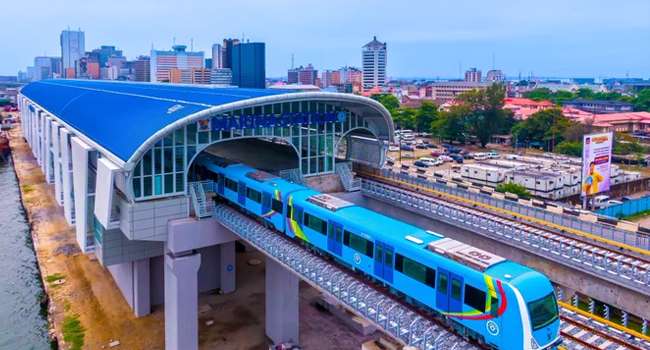The Lagos State Government has announced plans to demolish and rebuild the Mazamaza Bridge as part of the ongoing Phase 2 expansion of the Blue Line Rail, a 14-kilometer stretch extending from Mile 2 to Okokomaiko.
This decision follows structural tests revealing the bridge’s inability to support the demands of rail operations, according to Olasunkanmi Okusaga, Director of Rail Transport at the Lagos Metropolitan Area Transport Authority (LAMATA).
During a recent infrastructure update, Okusaga emphasized the importance of constructing a new bridge to ensure the rail system’s safety and efficiency. The new Mazamaza Bridge, which is already under development, will feature 66 foundational piers, with 22 completed so far, marking about 33% progress. The full pier installation is projected to finish by the end of the year, forming part of a durable structure expected to last over 75 years.

The Blue Line Rail Phase 2 project is a significant urban mobility initiative, integrating modern infrastructure such as the Mazamaza, Satellite, and LASU Bridges. These structures will enhance transportation in Lagos by linking key residential, educational, and commercial zones through six stations—Festac, Alakija, Trade Fair, Volkswagen, LASU, and Okokomaiko. The new system is designed to streamline movement across the city while boosting local economic activity.
A state-of-the-art depot, spanning 400,000 square meters, is also being constructed at Okokomaiko to handle rail maintenance and operations. The depot will serve as the backbone of the expanded rail network and accommodate future system upgrades.
LAMATA reports that the project is currently 26-27% complete, with construction led by the China Civil Engineering Construction Corporation (CCECC). Approximately 3,000 jobs have been created through the initiative, reflecting its economic impact on the state.
Safety and quality remain critical aspects of the construction process. LAMATA has implemented rigorous safety protocols, including detailed risk assessments and method statements, to safeguard workers and the public. Work sites are secured to maintain controlled and safe environments.
Progress is also visible at the Satellite and LASU Bridge sites, where construction is advancing steadily. The LASU Bridge, in particular, is designed to integrate seamlessly with a planned mega terminal, enhancing intermodal connections for commuters and students in the area.
When complete, this rail extension will bring Lagos closer to achieving a modern, efficient urban transit system, easing traffic congestion and promoting sustainable development in the metropolis. The government’s commitment to global best practices ensures these new bridges and rail systems will stand the test of time, creating a lasting legacy for the city’s infrastructure.




